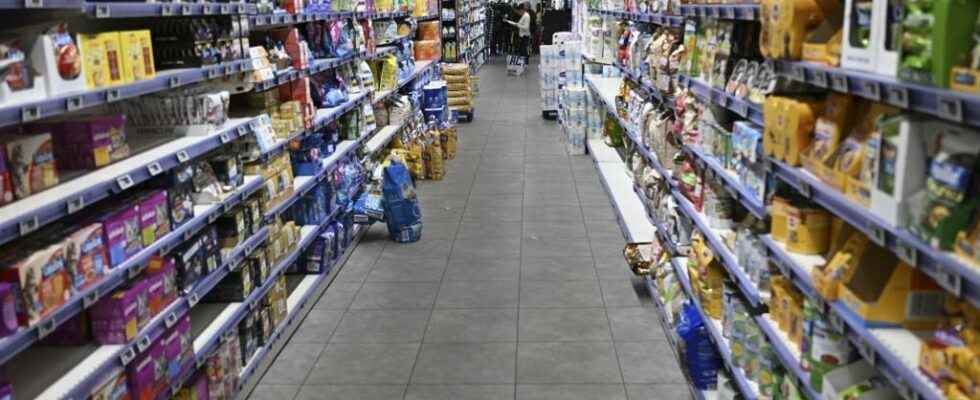A survey by the DGCCRF revealed “abusive practices” committed by “several retail brands”.
The authorities are raising their voices against the abuses of large retailers. In a press release, this Friday, the Directorate General for Competition, Consumption and the Repression of Fraud (DGCCRF) indicates that it has noted “abuse of logistical penalties by several large retailers“. Four of them are also pinned down by the authority, which summons them to respect the law, under penalty of having to pay “several million euros“.
In their contracts with their suppliers, distributors provide for penalties known aslogistics», in the event of supply difficulties. These aim to encourage suppliers to meet their commitments, in terms of delivery schedules and the quality of goods. However, these penalties must be balanced, otherwise suppliers will be in difficulty.
Read alsoFood waste: is it true that large retailers don’t throw away “a lot anymore”?
However, the pandemic and the war in Ukraine have destabilized supply chains, greatly complicating the work of suppliers. On the shelves, shortages are multiplying: according to the latest point from NielsenIQ, the stock-out rate in stores reached 5.8% in October, “i.e. an increase of 1.7 points compared to 2021 at the same period“. A potential shortfall of 3.5 billion euros in 2022, figures the firm. Penalties have therefore been more numerous in recent months.
Alerted by suppliers “of potential abuse“, last year, the DGCCRF looked into this file, conducting a survey of “over 200» professionals. As a result of this work,abusive practices“have indeed been observed by”several large retailers“, which are not named by the repression of fraud. Among the grievances noted, they imposed penalties on their suppliers, without the latter being able to contest them with a “physical interlocutor […]beyond a generic email address“, notes the press release. Another example, the burden of proof was reversed: it was up to the supplier to prove that the penalty was not justified, not up to the distributor to explain the punishment. Similarly, the distributors automatically deducted the penalty from the suppliers’ invoices, even though the latter contested it.
Call for “solidarity” in the sector
“These practices are expressly prohibited by the EGAlim 2 law.», stings the DGCCRF, which recalls that a «sufficient margin of errorshould be left to suppliers as part of their job. Four distributors have therefore been singled out: two have already receivedadministrative injunctions accompanied by financial penalties of several million euros“, and two others will be”in the next weeks“. In the absence of improvement, these penalties will have to be paid.
Quoted in the press release, the boss of Bercy, Bruno Le Maire, warns distributors who would be tempted to reproduce these behaviors, which “are not acceptable in this period when solidarity in the sector is essential“. “Threatening to delist products for the distributor or not to deliver them on time for the supplier in order to obtain the best price is not acceptable in this period when everyone must make an effort.“Adds the Minister Delegate in charge of SMEs and Trade, Olivia Grégoire.
“Distributors exert permanent pressure on their suppliers, lamented the Ministry of Agriculture a few weeks ago. Some impose penalties when the supplier does not deliver the quantities ordered, or on time. But all sectors face logistical difficulties», one indicated, emphasizing the impact of the «low availability of driverson supply chains. Despite a warning from the government in September, the situation does not seem to have improved significantly. At the time, the executive had nevertheless praised the behavior of three good students – Aldi and Lidl, which do not apply a logistics penalty, and System U, which adopted a moratorium on these penalties.
In addition to this announcement, the practices of mass distribution are under the spotlight. In July, the Minister of Economy and Finance had warned that the DGCCRF was going to carry out checks “sector by sectorto ensure that the inflation observed on store shelves over the past few months is indeed legitimate. This work should make it possible tosee if there are unacceptable margins“, and, possibly, to sanction the “inflationary crisis profiteers“.
SEE ALSO – Abuse of energy prices: the government will “name and shame” the suppliers concerned
